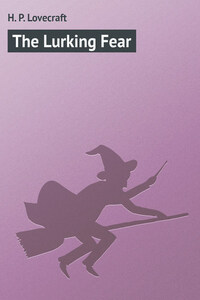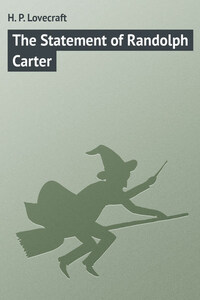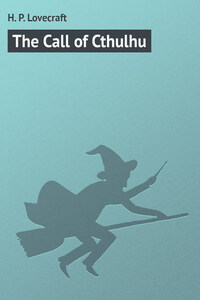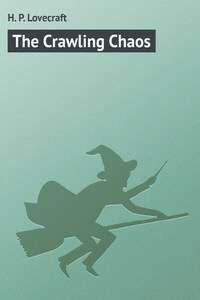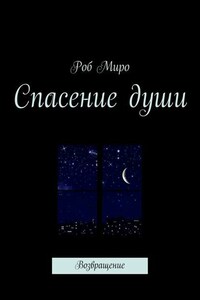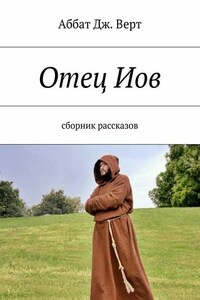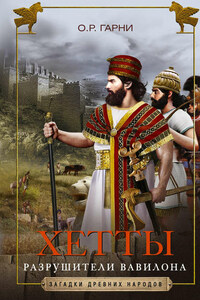I. The Shadow On The Chimney
There was thunder in the air on the night I went to the deserted mansion atop Tempest Mountain to find the lurking fear. I was not alone, for foolhardiness was not then mixed with that love of the grotesque and the terrible which has made my career a series of quests for strange horrors in literature and in life. With me were two faithful and muscular men for whom I had sent when the time came; men long associated with me in my ghastly explorations because of their peculiar fitness.
We had started quietly from the village because of the reporters who still lingered about after the eldritch panic of a month before – the nightmare creeping death. Later, I thought, they might aid me; but I did not want them then. Would to God I had let them share the search, that I might not have had to bear the secret alone so long; to bear it alone for fear the world would call me mad or go mad itself at the demon implications of the thing. Now that I am telling it anyway, lest the brooding make me a maniac, I wish I had never concealed it. For I, and I only, know what manner of fear lurked on that spectral and desolate mountain.
In a small motor-car we covered the miles of primeval forest and hill until the wooded ascent checked it. The country bore an aspect more than usually sinister as we viewed it by night and without the accustomed crowds of investigators, so that we were often tempted to use the acetylene headlight despite the attention it might attract. It was not a wholesome landscape after dark, and I believe I would have noticed its morbidity even had I been ignorant of the terror that stalked there. Of wild creatures there were none – they are wise when death leers close. The ancient lightning-scarred trees seemed unnaturally large and twisted, and the other vegetation unnaturally thick and feverish, while curious mounds and hummocks in the weedy, fulgurite-pitted earth reminded me of snakes and dead men’s skulls swelled to gigantic proportions.
Fear had lurked on Tempest Mountain for more than a century. This I learned at once from newspaper accounts of the catastrophe which first brought the region to the world’s notice. The place is a remote, lonely elevation in that part of the Catskills where Dutch civilization once feebly and transiently penetrated, leaving behind as it receded only a few mined mansions and a degenerate squatter population inhabiting pitiful hamlets on isolated slopes. Normal beings seldom visited the locality till the state police were formed, and even now only infrequent troopers patrol it. The fear, however, is an old tradition throughout the neighboring villages; since it is a prime topic in the simple discourse of the poor mongrels who sometimes leave their valleys to trade handwoven baskets for such primitive necessities as they cannot shoot, raise, or make.
The lurking fear dwelt in the shunned and deserted Martense mansion, which crowned the high but gradual eminence whose liability to frequent thunderstorms gave it the name of Tempest Mountain. For over a hundred years the antique, grove-circled stone house had been the subject of stories incredibly wild and monstrously hideous; stories of a silent colossal creeping death which stalked abroad in summer. With whimpering insistence the squatters told tales of a demon which seized lone wayfarers after dark, either carrying them off or leaving them in a frightful state of gnawed dismemberment; while sometimes they whispered of blood trails toward the distant mansion. Some said the thunder called the lurking fear out of its habitation, while others said the thunder was its voice.
No one outside the backwoods had believed these varying and conflicting stories, with their incoherent, extravagant descriptions of the hall-glimpsed fiend; yet not a farmer or villager doubted that the Martense mansion was ghoulishly haunted. Local history forbade such a doubt, although no ghostly evidence was ever found by such investigators as had visited the building after some especially vivid tale of the squatters. Grandmothers told strange myths of the Martense spectre; myths concerning the Martense family itself, its queer hereditary dissimilarity of eyes, its long, unnatural annals, and the murder which had cursed it.
The terror which brought me to the scene was a sudden and portentous confirmation of the mountaineers’ wildest legends. One summer night, after a thunderstorm of unprecedented violence, the countryside was aroused by a squatter stampede which no mere delusion could create. The pitiful throngs of natives shrieked and whined of the unnamable horror which had descended upon them, and they were not doubted. They had not seen it, but had heard such cries from one of their hamlets that they knew a creeping death had come.
In the morning citizens and state troopers followed the shuddering mountaineers to the place where they said the death had come. Death was indeed there. The ground under one of the squatter’s villages had caved in after a lightning stroke, destroying several of the malodorous shanties; but upon this property damage was superimposed an organic devastation which paled it to insignificance. Of a possible seventy-five natives who had inhabited this spot, not one living specimen was visible. The disordered earth was covered with blood and human debris bespeaking too vividly the ravages of demon teeth and talons; yet no visible trail led away from the carnage. That some hideous animal must be the cause, everyone quickly agreed; nor did any tongue now revive the charge that such cryptic deaths formed merely the sordid murders common in decadent communities. That charge was revived only when about twenty-five of the estimated population were found missing from the dead; and even then it was hard to explain the murder of fifty by half that number. But the fact remained that on a summer night a bolt had come out of the heavens and left a dead village whose corpses were horribly mangled, chewed, and clawed.
The excited countryside immediately connected the horror with the haunted Martense mansion, though the localities were over three miles apart. The troopers were more skeptical; including the mansion only casually in their investigations, and dropping it altogether when they found it thoroughly deserted. Country and village people, however I canvassed the place with infinite care; overturning everything in the house, sounding ponds and brooks, beating down bushes, and ransacking the nearby forests. All was in vain; the death that had come had left no trace save destruction itself.
